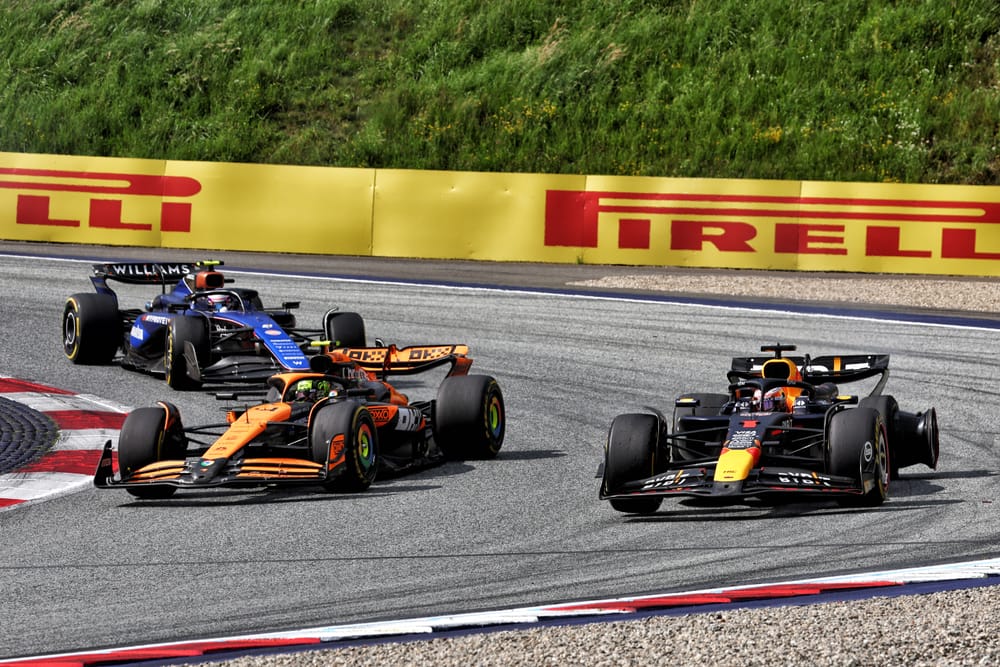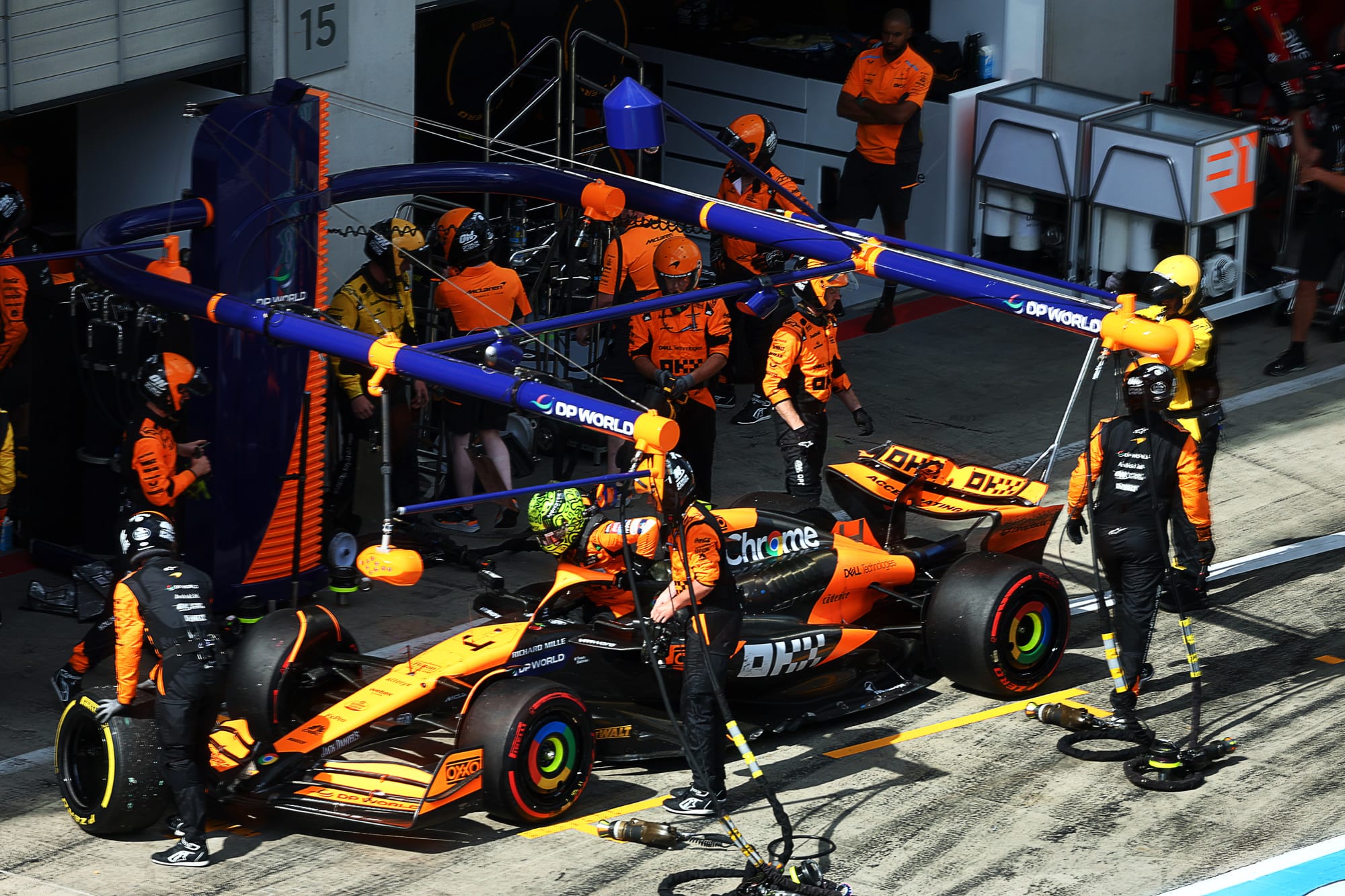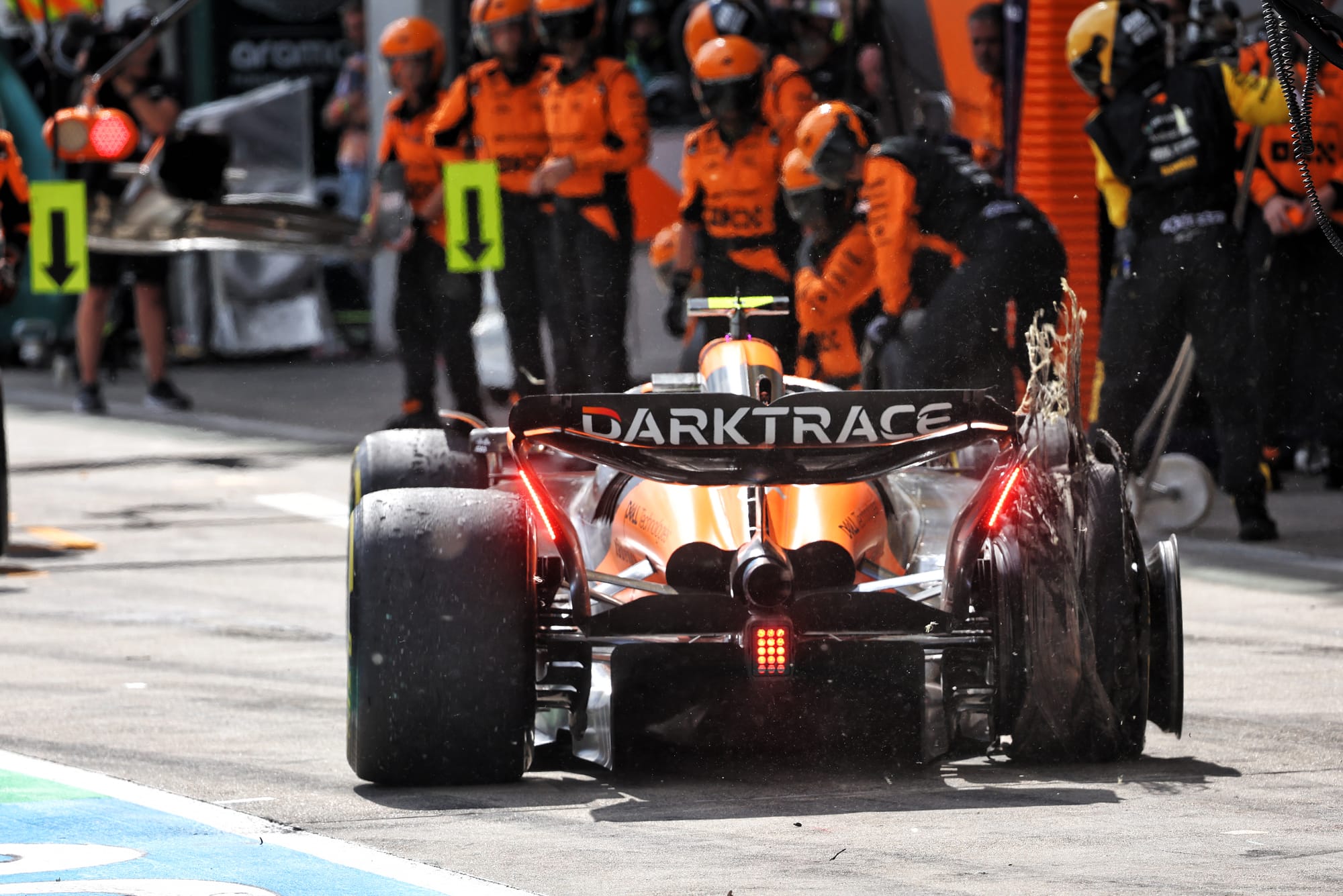Up Next

Max Verstappen and Lando Norris’s first Formula 1 controversy was inevitable, in no small part because Verstappen has not budged an inch from an uncompromising approach that takes him over the line sometimes.
Two frontrunning drivers fighting for wins are bound to clash at some point, especially when one of those is Verstappen. And though there is little that can change a driver’s natural attitude to racing, McLaren team principal Andrea Stella was right when he suggested better policing of the rules might make a difference.
Stella’s declaration that this was a legacy of Verstappen not being punished enough for incidents with Lewis Hamilton in their 2021 title fight was one of the most eye-catching comments of the Red Bull Ring clash fallout.
Past lenience has emboldened Verstappen to race in a particular way. It is harsh to suggest that Verstappen races with such arrogance that he believes he is untouchable because I don’t think Verstappen races so consciously with a view of ‘I can do whatever I want, they won’t punish me’.
But Verstappen has always raced with a certain approach: he doesn’t think he’s aggressive, he thinks he’s hard but fair. And with Verstappen sticking to this for so long, coming into F1 at an age when his racecraft and style would still be developing in car racing in F3 or F2 in a normal career, he has had a decade now of racing in a way that has largely gone unpunished. So he has not been in any way encouraged to change.
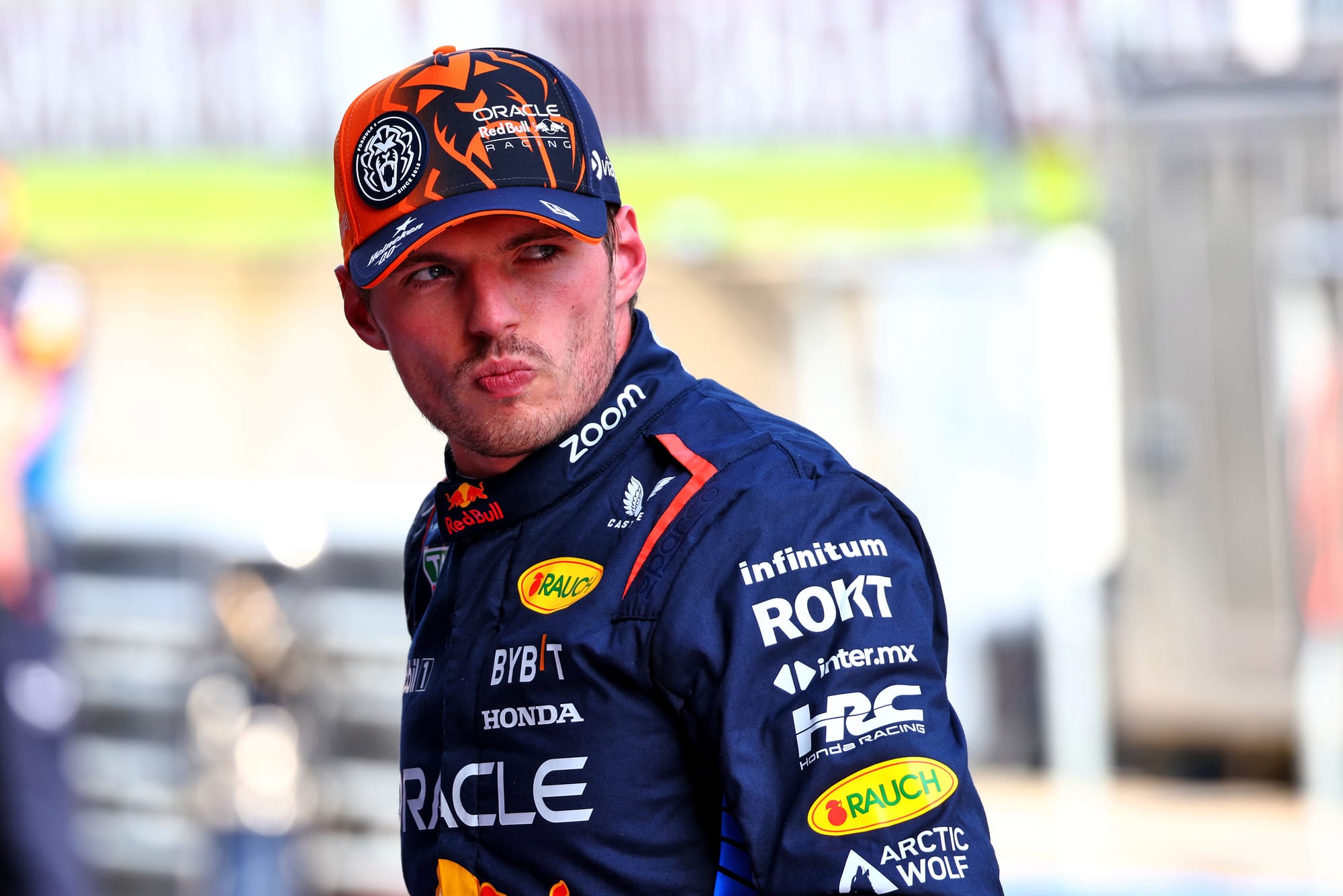
Every now and again he does pick up a penalty. But in 2021 in particular, to take Stella’s example, there were several moves (especially towards the end of the season when under the most pressure, when he was potentially vulnerable, as he was towards the end of the Austrian Grand Prix against Norris) where Verstappen crossed a line against Hamilton.
The problem is that the way that the races were being managed in 2021 by race control and the stewards put way too much emphasis on protecting the show. It went beyond ‘let them race’ and veered into preserving the entertainment at all costs. We know this because the following season the rules changed, and they've evolved again since then. And each of these evolutions has either made some of Verstappen’s moves from 2021 illegal, or just reaffirmed that they were at the time.
But because Verstappen went unpunished at the time, and before too, this is how he continues to race. He’s been emboldened to do so. It's worked in his favour, and it doesn't always end like this. So why would he change?
If you have a naturally aggressive, uncompromising racing driver, then you give them a long-standing F1 career that is partly built off being aggressive and uncompromising, why would that driver willingly be more conservative, or race in a way that is unnatural to them?
The result of nature, of nurture from his karting days, the way he’s grown up in racing, the way he’s been in F1, what happened at the height of fierce fighting in 2021 - all of that creates the driver that Norris went up against on Sunday, a driver who tests the limits more than most and is more likely to stray over them as a result.
An unpredictable rival often requires unpredictability to beat them. The only way to take Verstappen on is either to pummel him through sheer speed (which hasn’t happened consistently since some of Hamilton’s best races in 2021) or to fight fire with fire. Norris took the latter approach in Austria. Not yielding heightens the risk of an accident, but that’s how it is.
One other point Stella made is that Verstappen doesn’t need to do this. We know he doesn’t like losing any single fight. Perhaps if he did lose one or two now and then, he’d have fewer of these incidents, and he’d probably have a better reputation amongst the people that do think the worst of him as a driver - but doubtless Verstappen does not care about that.
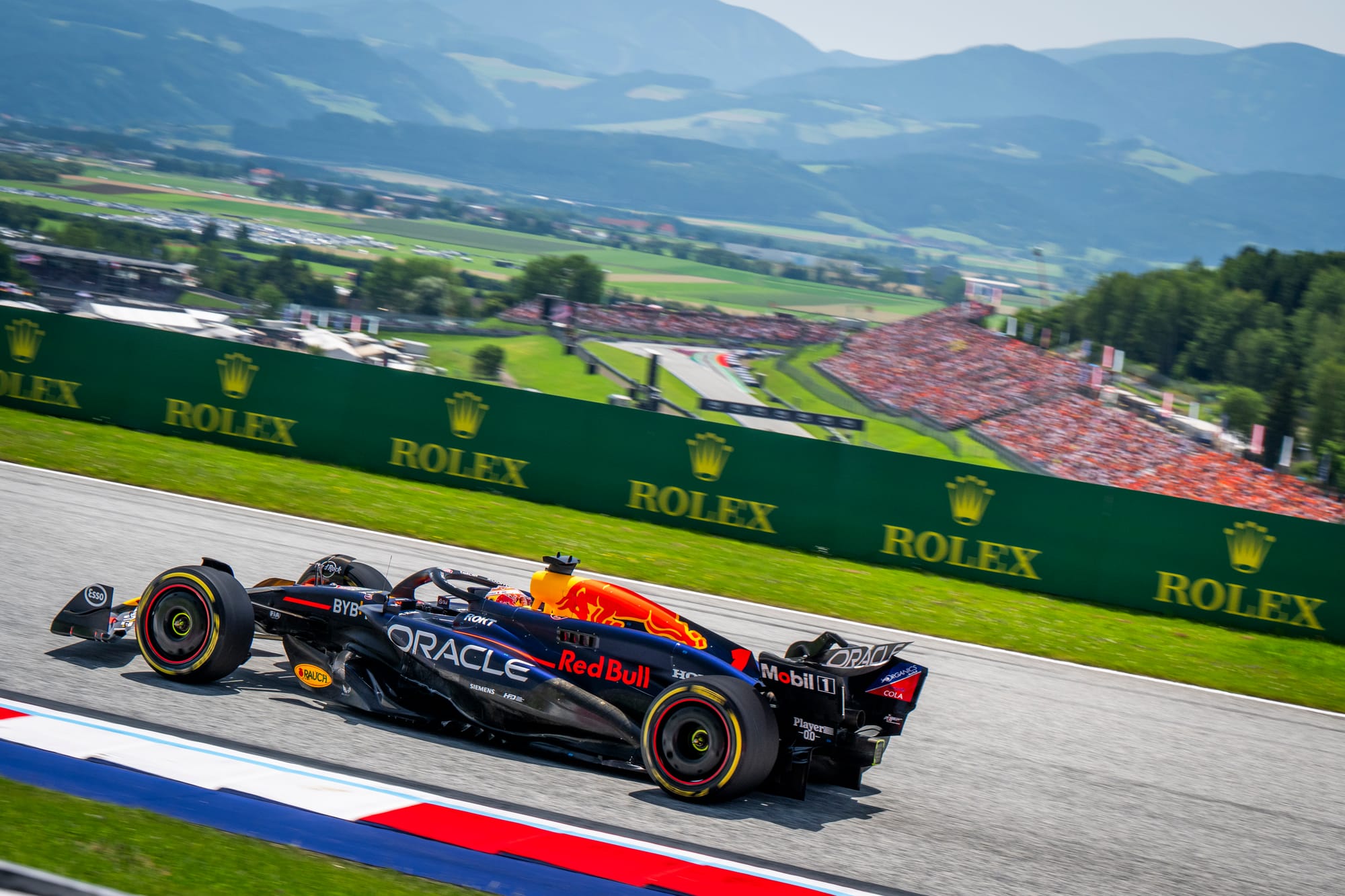
You could also argue that Verstappen wouldn’t be the driver he is at all if he reined in that final 1% in battle. Perhaps it’s part and parcel of the same mentality that allows him to do everything else that is so good, so effective. But it has a clear downside.
It is a weakness in specific circumstances - namely, a sustained wheel-to-wheel fight with increasing pressure - that leaves Verstappen vulnerable. This creates the conditions for exactly what happened in Austria and, most likely, at other races in the future.
That's frustrating for his rivals in situations like this, but it's also a problem for Verstappen himself.

